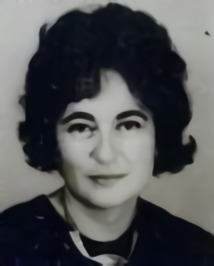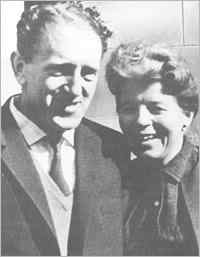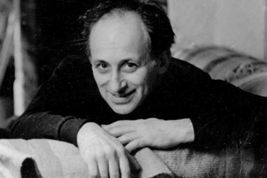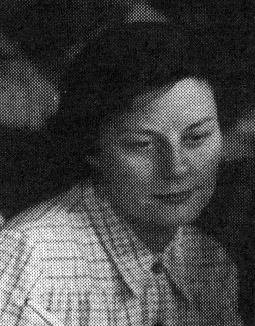Related Research Articles

Nontsikelelo Albertina Sisulu was a South African anti-apartheid activist, and the wife of fellow activist Walter Sisulu (1912–2003). She was affectionately known as "Ma Sisulu" throughout her lifetime by the South African public. In 2004 she was voted 57th in the SABC3's Great South Africans. She died on 2 June 2011 in her home in Linden, Johannesburg, South Africa, aged 92.

Dulcie Evonne September was a South African anti-apartheid political activist. Born in Athlone, Western Cape, South Africa, she was assassinated in Paris, France.

Heloise Ruth First was a South African anti-apartheid activist and scholar. She was assassinated in Mozambique, where she was working in exile, by a parcel bomb built by South African police.

Helen Beatrice Joseph was a South African anti-apartheid activist. Born in Sussex, England, Helen graduated with a degree in English from the University of London in 1927 and then departed for India, where she taught for three years at Mahbubia School for girls in Hyderabad. In about 1930 she left India for England via South Africa. However, she settled in Durban, where she met and married a dentist, Billie Joseph, whom she later divorced.

Albert "Albie" Louis Sachs is a South African lawyer, activist, writer, and former judge appointed to the first Constitutional Court of South Africa by Nelson Mandela.

Lionel "Rusty" Bernstein was a Jewish South African anti-apartheid activist and political prisoner. He played a key role in political organizations such as the South African Communist Party (SACP) and the African National Congress (ANC). He helped form the Congress of Democrats to bolster white participation in the ANC, and he brought its allies together to establish a Congress of the People, working closely with Nelson Mandela.

Hilda Bernstein was a British-born author, artist, and an activist against apartheid and for women's rights.
Zephania Lekoame Mothopeng was a South African political activist and member of the Pan-Africanist Congress (PAC).
Gwen Lister is a Namibian journalist, publisher, anti-apartheid and press freedom activist.

Harold Rubens (1918–2010) was a Welsh pianist and anti-apartheid activist.
Mapetla Mohapi was a member of the Black Consciousness Movement, who died in detention during Apartheid in 1976.
Dorothy Mary Benson was a South African civil rights campaigner and author.
Emil Solomon “Solly” Sachs was a South African trade unionist and an anti-apartheid activist.

Bettie du Toit OLS was a trade unionist and anti-apartheid activist in South Africa.
Phyllis Altman was a trade unionist and anti-apartheid activist in South Africa. Altman was an employee of the South African Congress of Trade Unions (SACTU). She was also the general secretary of the International Defence and Aid Fund (IDAF), and a fiction writer.
Sister Mary Bernard Ncube was a South African religious sister and anti-apartheid activist. As a Catholic nun, she often faced criticism from the church over her politics, including her more liberal stance on abortion. Because of her anti-apartheid activities, she was often arrested and is probably the first sister to be arrested in South Africa.

Sonia Bunting, OLS was a South African journalist, and a political and anti-apartheid activist. After being charged with treason and imprisoned, being detained a second time, and barred from publishing, she and her husband went into exile in London, where she joined the Anti-Apartheid Movement (AAM) and organised the World Campaign for the Release of South African Political Prisoners. When the African National Congress (ANC) ban was lifted in 1991, she returned to South Africa where she was involved in political activism until her death in 2001. She was posthumously honored by the government of South Africa with the Order of Luthuli in Silver in 2010.
Wendy Heather Woods was a South African educator and anti-apartheid activist. Woods worked with her husband, journalist Donald Woods, on anti-apartheid activities and both fled into exile to the United Kingdom in 1977. Woods herself was an active member of the Black Sash. In exile, Woods worked with various charities and after her husband's death, set up the Donald Woods Foundation. She and her family are featured in the 1987 movie, Cry Freedom.
The Teachers' League of South Africa (TLSA) was an organization for coloured teachers founded in Cape Town in June of 1913. The group, while originally focused on issues surrounding education, became increasingly political in the mid-1940s and started to agitate against apartheid. Due to state suppression, the group became defunct in 1963.
Adelaine "Ad" Florence Hain was a South African anti-apartheid activist. She was a member of the South African Liberal Party and was active in Pretoria. After she and her family left South Africa, she continued to agitate in London. Hain is the mother of British politician, Peter Hain, and she worked for him part-time until she was 82.
References
- 1 2 3 4 5 6 7 8 9 10 11 12 13 14 15 16 "Dorothy Adams". South African History Online. Retrieved 3 January 2020.
- 1 2 3 4 5 6 7 Williams, Clifford (5 May 2011). "Dorothy Williams obituary". The Guardian. ISSN 0261-3077 . Retrieved 3 January 2020.
- 1 2 Sachs, Albie (1966). The Jail Diary of Albie Sachs . London: Harvill Press, Ltd. pp. 18, 20.
- ↑ "Sachs Appeal". The Guardian. 12 November 1988. p. 36. Retrieved 3 January 2020– via Newspapers.com.